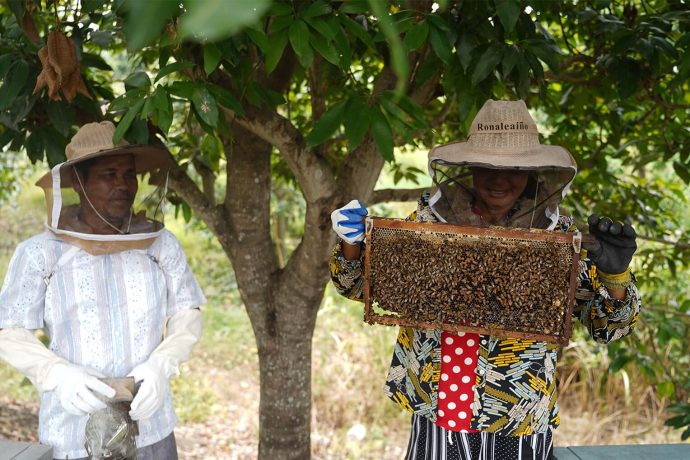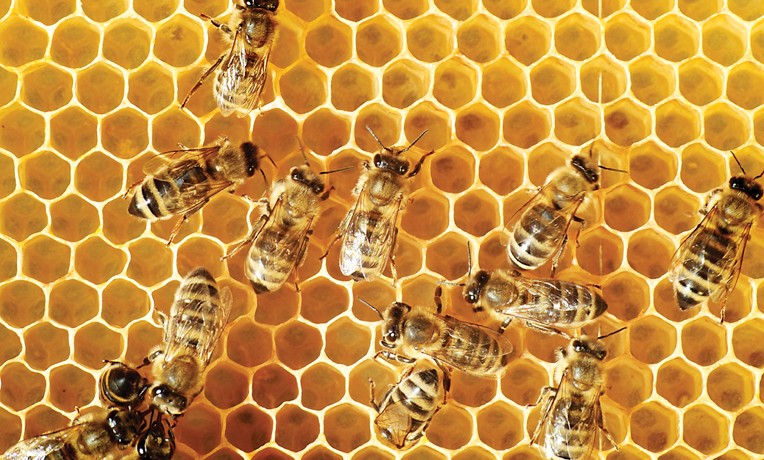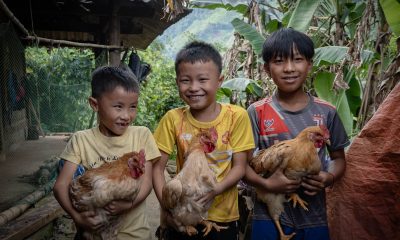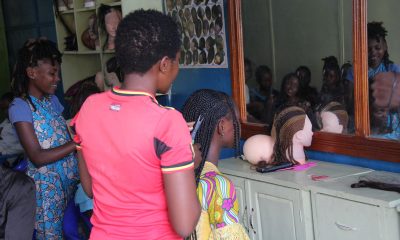A couple in Cambodia learns beekeeping from Samaritan’s Purse to help provide for their family.
Smoke billows out of the pot in Lorn Siangley’s hands as she seeks to calm her bees. She is working to inspect them after her harvested honey sold out. Siangley and her husband, Pom Poun, both in their early 50s, received five hives from Samaritan’s Purse a year ago. They were trained in beekeeping in a class that also included a Gospel presentation.
Today after working hard to split and grow their colony, the couple has 17 hives! They have also given two hives to others in the community who want to start their own business. God is using this new venture to provide for Siangley and Poun’s family of five children and two grandchildren as they continue to explore the teachings of Jesus Christ.
Seeing Opportunities and Threats
“Giving me bees is like giving me a regular salary,” Siangley said. “I didn’t know what to say, I was happy to have a lot of honey to sell.”
But first she had to overcome her fear of getting stung.

“Giving me bees is like giving me a regular salary,” Siangley said.
Workshops sponsored by Samaritan’s Purse and facilitated by a university professor helped Siangley gain confidence around the bees. Now, she and her husband check the bees once every three to five days to make sure the queen is still producing eggs and that there is enough of the artificial feed. This soybean flour mixed with sugar and water takes the place of pollen and another sugar-water mix for nectar is used during dry seasons when the bees have limited access to flowers.
The new business comes with some other obstacles as well. Pesticides used by nearby farmers threaten the colony. To help mitigate this, Siangley closes the entrance of the hives when farmers are spraying and also communicates with them about preferred treatments for crops that are less harmful for bees.

Siangley’s bees feast on nearby corn tassels.
Early on, it was also difficult for Siangley and Poun to split the hives because the bees flew away. Fortunately, they congregated around a nearby tree, and Siangley utilized her training to either capture them with a net or scoop them up with her hands to get them back in the hives.
Overcoming these various challenges has given Siangley and Poun greater confidence in their beekeeping skills and helps them continue to grow their business.
Providing for Their Family
By selling liters of honey for $10 to $15 a piece, the couple gains enough profit to explore other income-generating projects such as gardening herbs and vegetables and raising crickets—a favorite protein in Cambodia.

With the money she earned from selling honey, Siangley purchased crickets as an additional way to provide for her family.
“Siangley is earning enough money to pay off her debts every month and support her family,” said Chomrong, a Samaritan’s Purse staff member. “She is saving up to buy her daughter a motorbike to get to school, and with her increased income, this goal is now feasible.”
Poun is also grateful for how the beekeeping work equips him to help provide for his family. Traditional labor jobs are difficult for him to hold because of an accident he suffered years ago. He sustained head and leg injuries that continue to give him trouble today and his impaired vision compounds the problem.
“With bees, both husband and wife are able to work together for this common purpose,” Chomrong said. “It is not physically taxing work, but it makes a huge difference in terms of their present and future opportunities.”

Still injured from an accident years ago, Poun (left) finds traditional labor jobs difficult for him. He is grateful for how beekeeping with Siangley helps him provide for his family.
Siangley equates their bees to treasure. “I would like to thank Samaritan’s Purse for providing beekeeping resources and teaching lessons to help my family live,” she said.
Samaritan’s Purse has taught 109 Cambodian families how to care for bees and distributed 595 starter hives.
Barry Jessen, Samaritan’s Purse country director for Cambodia, said, “One of the things I love about the program is its ability to provide additional income for people who are older or not as strong. I love the way the bee farmers seem to work together.”
Please pray for Siangley and Poun to continue to multiply their beekeeping business and that their hearts would awaken to the hope of the Gospel of Jesus Christ. Pray also for Samaritan’s Purse staff in Cambodia as they serve this couple and other beekeepers in Jesus’ Name.









